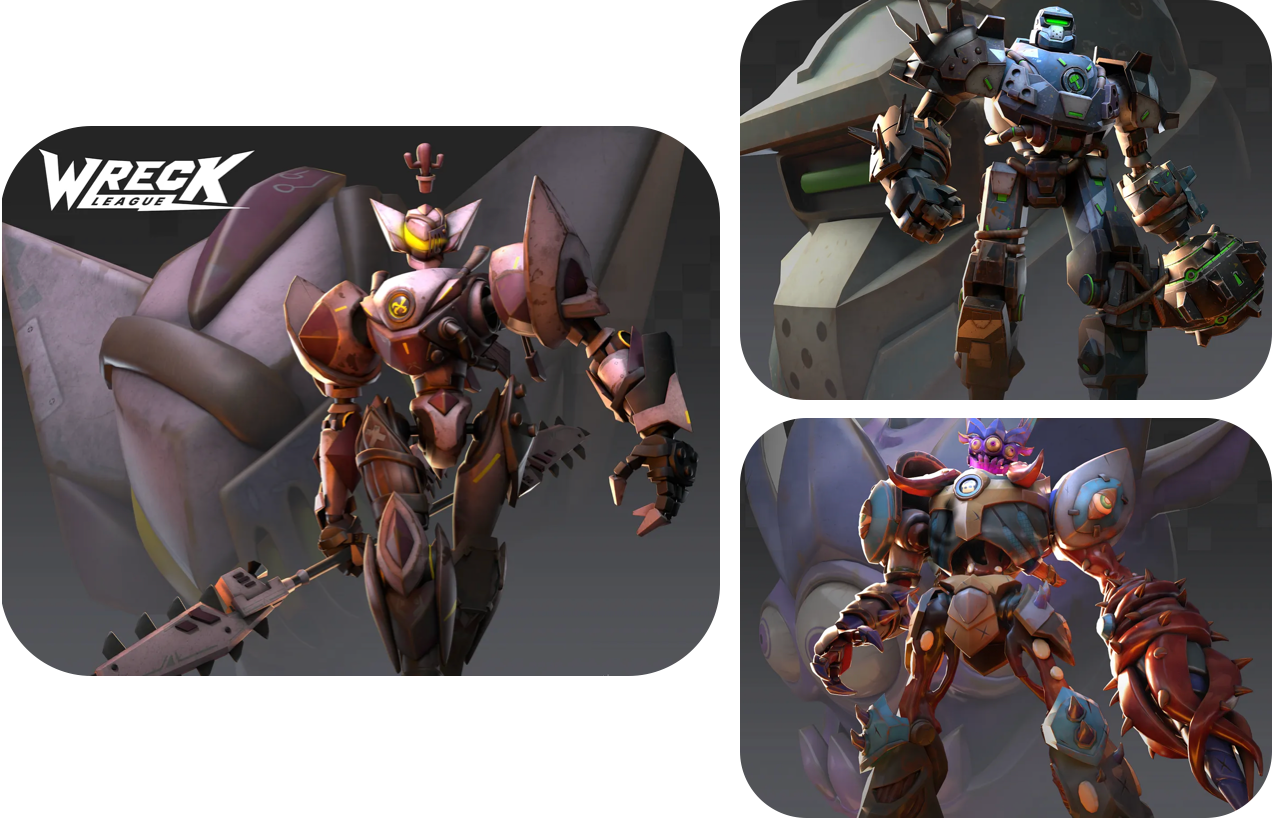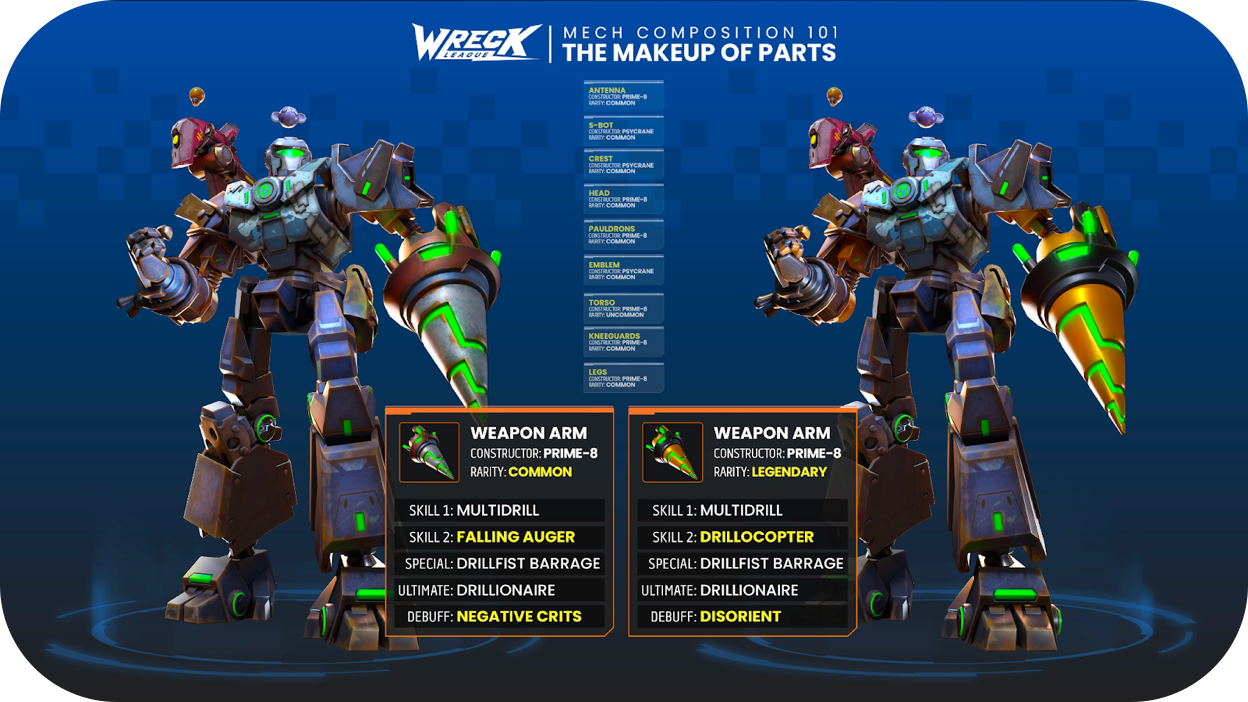
This document is a collaborative research output between Animoca Brands and Tiger Research. Check out the Press Release here
Research by Animoca Brands Digital Asset Team
Adrian Li (@adrianchli)
Samuel Ng (@HugeMistake_eth)
Ian Yeung (@Obsid1an_)
Introduction
As we discussed in our previous piece on “2023 Korea's Web3 Gaming Landscape” although there are strict regulations, South Korean gamers are eagerly awaiting innovative forms of blockchain gaming. For fans of the fighting game category who are nostalgic for this genre, this is an especially thrilling period. As technological advancements pave the way for improved graphics, mechanics, and storytelling, fighting games are anticipated to evolve into even more immersive experiences, particularly in collaboration with blockchain technology. South Korea's response to a new fighting game can be a significant indicator of its global success. Moreover, with the rise of esports and the growing interest in competitive gaming, a new fighting game offers not only enhanced gameplay but also potential arenas for professional players to display their prowess. This news is particularly exciting when considering South Korea's prominent gaming culture.
With over 35 million gamers, South Korea is the 4th largest gaming market globally by revenue, and market size doubled over the last decade to more than US$15B, signaling the nation’s high interest in gaming. Although Korea predominantly leans towards RPG, FPS, and Sports genres, the Fighting game genre has also previously etched its presence in the Korean market, taking a fair share of the massive market size with IPs such as ‘Tekken’ and ‘The King of Fighters’ leading the charge.
Tekken 7: A Dominant eSports Scene
A region’s esports scene stands as a compelling indicator of the market’s dedication to a specific game, and the South Korean Tekken 7 esports is an example of this. In this sense, South Korea's prowess within Tekken 7 esports shines brightly. For years, it has held the mantle of Tekken supremacy, boasting remarkable players such as Byeong-mun “Qudans” Son, Hyun-jin “JDCR” Kim, and Jae-min “Knee” Bae, acclaimed as the "King of Tekken." The remarkable skill of these players has translated into South Korea dominating the Tekken 7 scene since its launch in 2015, even amassing the highest total prize money out of all other countries. #Reference
The King of Fighters: A Historical Significance
In terms of a significant IP when looking back at Korea’s gaming history, "The King of Fighters" had gained immense popularity in South Korea within the early 2000s. This global and local acclaim led to a strategic collaboration with Eolith, a South Korean video game company. This partnership birthed subsequent iterations of the IP (The King of Fighters 2001 & The King of Fighters 2002: Challenge to Ultimate Battle) that further grew the IP within the market.
Untapped Potential in Korean Market
While these two IPs have left their mark, the broader Fighting game landscape in Korea remains relatively unexplored. This gap signifies a substantial unmet demand for a web2 fighting game, let alone a web3 game, which can engage with players on a much deeper level through tokens & innovative reward mechanics.
Web3 Fighting Games: An Emerging Era
The early 2000s success of "The King of Fighters" in the South Korean market inspired Netmarble, a prominent AAA video game studio, to create a web3 iteration of the IP on top of their MarbleX blockchain ecosystem. The result was "The King of Fighters Arena", a crypto-integrated mobile fighter, heralding a new era for fighting games in the digital landscape.
The outcome was a transformation of a sought-after IP into a mobile fighter with some web3 elements, enabling individuals to possess an NFT that not only carries intrinsic value but also grants eligibility to earn tokens through competitive matches. In a span of fewer than nine months, this venture had amassed a trading volume of over 225,000 MBX tokens (Approximately $180,000) on Netmarble's dedicated NFT marketplace.
However, a substantial portion of The King of Fighters Arena players chose not to actively purchase any NFTs or buy the token to engage with the web3 facets of the game. Instead, a majority of these players found their enjoyment in the gameplay itself, relishing the pure entertainment derived from engaging in battles with characters that evoke nostalgia from the early 2000s. What was lacking in this instance was not the interest from players but instead a smooth onboarding experience for existing web2 users into a web3 ecosystem... and this is where Wreck League’s edge lies, and we believe they can transform the next hoard of web3 fighters.
What is Wreck League?
Wreck League is a fighting project that signifies a new phase in the progression of fighting games and esports in web3. Developed through the collaboration of nWay and Animoca Brands, and with the participation of Yuga Labs as the Season 1 partner, along with more partnerships in the pipeline, Wreck League emerges as the most ambitious web3 gaming venture released thus far.
Wreck League revolves around the utilization of NFT-minted components to construct mechs that engage in real-time player-versus-player (PvP) battles. Unlike traditional fighting games, such as Tekken and The King of Fighters, that offer a fixed selection of fighters for players to pick from, Wreck League is reshaping this landscape. Each fighter materializes as a mech NFT, meticulously created and owned by its designer. These mechs comprise 10 unique parts, determining their appearance and performance in combat. Upon an in-depth exploration of the significance of a mech fighting game within the web3 landscape, the focus now shifts to the accomplished individuals steering its conceptualization.
nWay Games: A Driving Force
Leading this ambitious endeavor is nWay Games, a distinguished developer renowned for its portfolio featuring titles like Power Rangers Legacy Wars and Power Rangers Battle for the Grid. Boasting a remarkable track record of over 50 million downloads, nWay Games has effectively solidified its stature within the competitive fighting game community, bolstered by their expertise in the creation of engaging gaming experiences.
Alongside this is Taehoon Kim, who has acted as Founders, Co-Founders, and Advisors of multiple companies that have since been acquired by the likes of Epic Games, Netmarble, and GamersFirst. With his various experiences building companies as key players and his previous time within the South Korean gaming industry, his bout into web2 and web3 games with nWay is his next venture that can not only attract web3 veterans but also introduce a new wave of web2 players into the crypto gaming sphere.
Anticipating Collaborative Ventures
A strength of web3 is in its communities, and the many collaborations that can manifest within a single project as a result of digital property rights. In light of this, nWay Games has previously demonstrated their ability to seamlessly integrate esteemed IPs from external brands into their gaming ecosystem. With IPs such as Street Fighter previously being integrated within their previous Power Ranger projects.
With the experience of integrating external brands into their games and staying within the spirit of web3, Wreck League's first collaboration is with the esteemed Yuga Labs, creators of the Bored Ape Yacht Club NFT collection. This acts as a pivotal partnership demonstrating Wreck League’s vision to position itself as an interconnected realm of IPs in the future; bringing further opportunities to embrace future potential collaborations into the Wreck League ecosystem.
Potential of Wreck League
As previously mentioned, in Wreck League, players have the opportunity to go beyond the traditional fighter selection found in most games. They can engage in a unique mech-building experience by assembling and disassembling their mechs using NFT components.
This mech-building aspect adds a personal touch to a fighting game, reminiscent of deck-building games. With a wide variety of combinations available, players can create their own unique mechs and fine-tune their gameplay experience, providing a sense of satisfaction similar to that found in strategy games when discovering the perfect build.
This feature introduces a new level of customization, strategy, and replayability to the genre while simultaneously sparking potential online discussions about enjoyable mech combinations, contributing to the growth of the community through positive word of mouth. Furthermore, the mech-building feature has the potential to attract players from different gaming communities, expanding the audience of Wreck League and appealing to a broader market.
Comparisons with The King of Fighters Arena
When looking back at The King of Fighters Arena's experience in web3, a clear disparity emerges in terms of their ability to transition their existing web2 audience into the realm of web3. Conversely, Wreck League stands out with a distinct advantage, attracting the attention of a pre-existing web3 community due to its strategic collaboration with Yuga Labs. However, where The King of Fighters Arena excelled was in its pre-existing web2 demographic, while Wreck League faces the pivotal task of appealing to a web2 audience and allowing them to fully partake in the web3 experience without feeling coerced into NFT purchases.
To address this challenge, Wreck League is poised to introduce a web2 version of the game that expertly bridges the gap between web2 and web3 players. This visionary approach will empower NFT holders to present their mech NFTs as non-NFT in-app purchases (IAPs) within the web2 iteration. This ingenious feature not only adheres to application guidelines but also garners dual benefits. Web3 users unlock the potential to monetize their assets, while web2 players revel in enriched and diversified content offerings. With this mechanism at its core, Wreck League establishes an ecosystem where both NFT holders and traditional players can mutually thrive.
Disclaimers
This report comprises information sourced from resources deemed reliable. Nonetheless, neither an explicit nor an implicit guarantee is provided concerning the accuracy, completeness, or adequacy of such data. We disclaim any liability for any losses arising from the use of this report or its contents. The conclusions and recommendations within this report, premised on information available at the time of creation, are subject to change without prior notification. Any projections, estimates, forecasts, targets, opinions, and/or perspectives expressed in these materials are subject to change without prior notice and may differ or be contrary to views expressed by others. This document is provided solely for informational purposes and should not be construed as legal, business, investment, or tax advice. It is recommended that you consult with your own advisors regarding these matters. References to any securities or digital assets are purely illustrative and do not constitute an investment recommendation or an offer to provide investment advisory services. Furthermore, this material is neither designed for nor directed at any investors or potential investors.
Participate in our 1-minute survey to help improve our weekly reports. As a thank you, download Tiger Research's original "2023 Country Crypto Matrix" spreadsheet, all-in-one spreadsheet for the global virtual asset market analysis.















